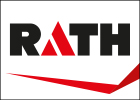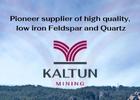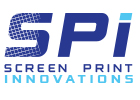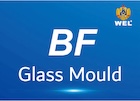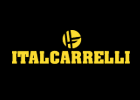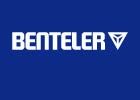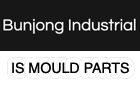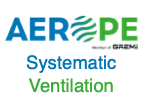In a time of transformation within the glass manufacturing industry, Arglass has made a decisive step forward by opting for a state-of-the-art 12,000 m³/h vacuum flow solution from Pneumofore, marking a bold investment in sustainable and efficient glass production. While outdated glass furnaces are being retired, companies like Arglass are turning to advanced Greenfield projects, taking advantage of innovations that provide higher efficiency, longevity, and reduced environmental impact. This trend reflects a broader shift in the industry, where technological advancements are making a compelling case for new installations over continuous costly repairs of aging infrastructure.
As the glass industry navigates the complexities of modern demand, companies are increasingly prioritizing equipment that combines durability with reliable performance. Arglass's choice underscores a clear preference for machinery that aligns with the industry's urgent decarbonization efforts, a priority driven by both regulatory pressures and corporate sustainability goals. This evolution is evident across all aspects of glass production, from the furnaces and IS machines to the quality control systems, palletizers, and more. Selecting machines today requires an exhaustive review of the Total Cost of Ownership (TCO), particularly for energy-intensive components like air compressors and vacuum pumps that can significantly impact a facility’s operational costs and environmental footprint.
For facilities operating with gas-driven furnaces, pneumatic systems account for the largest share of electric power consumption, making energy-efficient machinery a crucial investment. With solutions like Pneumofore's UV50 vacuum pumps, Arglass has positioned itself at the forefront of energy-conscious glass production and setting a benchmark in sustainable industrial practices. The extraordinary efficiency-guarantee of 10 years was decisive for the selection of the vacuum pump supplier.
Customization is a central element in selecting high-performance equipment, and the Pneumofore vacuum pumps chosen by Arglass are exemplary in this regard. Each vacuum pump is equipped with a Siemens PLC (Programmable Logic Controller) and HMI (Human-Machine Interface), enhancing operational control and ease of use. Additionally, the entire system is UL certified, ensuring compliance with North American safety standards and is water-cooled for thermal management.
Furthermore, the pumps are integrated with Pneumofore’s proprietary VacMan control system, designed to connect seamlessly to the facility’s central control network. VacMan functions as a sequencer and integrates with SCADA (Supervisory Control and Data Acquisition) via TCP/IP or Ethernet, enabling real-time communication of machine status and performance metrics. This connectivity provides Arglass with enhanced oversight and operational efficiency, allowing for timely adjustments and preventive maintenance.
In an industry where installed power for compressors and pumps can total thousands of kWs, companies are recognizing the critical role of energy-efficient technologies. Through careful evaluation of available solutions, engineers can pinpoint the systems that bring long-term savings and reliability. Factors like operational lifetime, maintenance requirements, and power consumption are key drivers in these decisions, reflecting a growing emphasis on reducing greenhouse gas emissions and minimizing energy costs.
The choice of Pneumofore's technology aligns with Arglass's commitment to sustainability and innovation. As the glass manufacturing industry continues to evolve, this project highlights the possibilities that emerge when cutting-edge technology meets responsible industrial practices. With durable, efficient, and customized equipment, Arglass is setting a new standard in glass production, exemplifying how sustainable choices can lead to profitable outcomes and industry-wide change.



